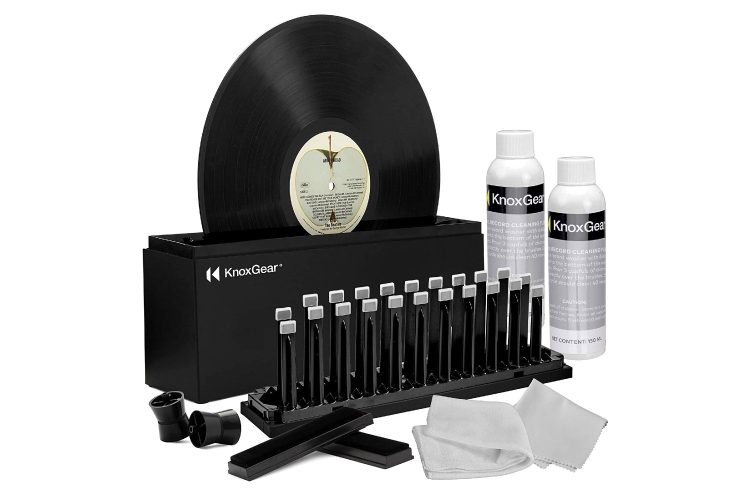Types of Record Cleaners

Vinyl records have made a remarkable comeback in recent years, with music enthusiasts rediscovering the warm and authentic sound that these analog recordings offer. However, to fully enjoy the rich audio experience that vinyl provides, it is crucial to keep your records clean and free from dust, dirt, and other contaminants. This is where a record cleaner comes into play. A record cleaner is a specialized device or cleaning solution designed to effectively clean vinyl records, ensuring optimal playback quality and longevity. In this article, we will explore the importance of record cleaning, different types of record cleaners available, and the best practices for maintaining your vinyl collection.
Types of Record Cleaners
There are various types of record cleaners available on the market, each with its own unique features and benefits. One popular type is the record cleaning machine. These machines use a combination of brushes, cleaning solutions, and vacuum suction to thoroughly clean both sides of the record simultaneously. Record cleaning machines are highly effective in removing deep-seated dirt and grime from the grooves of the vinyl, resulting in improved sound quality [3].
Another type of record cleaner is the manual cleaning kit. These kits typically include a soft brush or cloth, along with a cleaning solution. Manual cleaning involves gently brushing the record’s surface in a circular motion, using the cleaning solution to remove any stubborn stains or debris. While manual cleaning may not be as thorough as using a record cleaning machine, it is still an effective method for regular maintenance and upkeep of your vinyl collection [1].
The Importance of Record Cleaning
Proper record cleaning is essential for maintaining the sound quality and longevity of your vinyl records. Over time, dust, dirt, and oils from fingers can accumulate on the surface of the record, causing distortion and background noise during playback. Additionally, these contaminants can damage the delicate stylus of your turntable, leading to premature wear and tear. By regularly cleaning your records, you can ensure that they remain in pristine condition, allowing you to enjoy the true audio fidelity that vinyl has to offer [4].
Best Practices for Record Cleaning
When it comes to cleaning your vinyl records, there are a few best practices to keep in mind. Firstly, always handle your records with clean hands or wear gloves to prevent transferring oils and dirt onto the surface. Before cleaning, remove any loose dust or debris using a carbon fiber brush or a record cleaning brush. This step will minimize the risk of scratching the record during the cleaning process.
When using a record cleaning machine, follow the manufacturer’s instructions carefully. Apply the recommended cleaning solution to the record’s surface and use the machine’s brushes and vacuum suction to remove dirt and grime. For manual cleaning, apply a small amount of cleaning solution to a soft brush or cloth and gently clean the record in a circular motion. Avoid using excessive pressure or abrasive materials that could damage the record.
After cleaning, allow the record to air dry completely before placing it back into its sleeve. It is also recommended to store your records in anti-static inner sleeves to further protect them from dust and static buildup.
Conclusion
Keeping your vinyl records clean is crucial for preserving their sound quality and ensuring their longevity. Whether you opt for a record cleaning machine or a manual cleaning kit, regular maintenance will help you enjoy your vinyl collection to its fullest potential. By following best practices and investing in a reliable record cleaner, you can ensure that your records remain in excellent condition for years to come.





